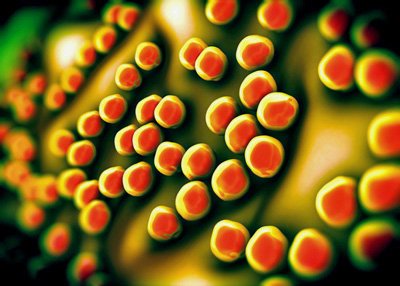Scientists discover a faster way to synthesise antibiotics
Posted: 4 May 2016 | Victoria White, Digital Content Producer | No comments yet
By expressing the genes involved in the production of pleuromutilin in a different type of fungus, researchers increased production by more than 2,000%…


Scientists from the University of Bristol have discovered a novel way of synthesising a promising new antibiotic.
By expressing the genes involved in the production of pleuromutilin in a different type of fungus, the researchers were able to increase production by more than 2,000%.
With resistance growing to existing antibiotics, there is a vital and urgent need for the discovery and development of new antibiotics that are cost effective. Promising developments are derivatives of the antibiotic pleuromutilin, which are isolated from the mushroom Clitopilus passeckerianus. These new compounds are some of the only new class of antibiotics to join the market recently as human therapeutics. Furthermore, with their novel mode of action and lack of cross-resistance, pleuromutilins and their derivatives represent a class with further great potential, particularly for treating resistant strains.
However, mushrooms are basidiomycete fungi which are not generally amenable to strain improvement and fermentation. Therefore, the Bristol scientists carried out research to identify the genes involved in the production of pleuromutilin. They discovered that a seven-gene cluster is required to produce the antibiotic in C. passeckerianus. The seven-gene pleuromutilin cluster was then reconstructed within a more industrial fungus, Aspergillus oryzae which belongs to a different group of fungi, the ascomycetes. This resulted in a significant increase (2,106%) in production.
This is the first gene cluster from a basidiomycete to be successfully expressed in an ascomycete, and paves the way for the exploitation of a metabolically rich but traditionally overlooked group of fungi.
Professor Gary Foster commented on the research: “With this development, we are now ideally placed to develop novel derivatives and new antibiotics and produce them rapidly and cost effectively – something which is desperately needed globally.”
A novel semisynthetic pleuromutilin, retapamulin, was launched by GSK as the drug Altabax. GSK collaborated with the Bristol scientists on the research.
You can find out more about the threat of antibiotic resistance in our infographic.
Related topics
Antibiotics
Related organisations
Bristol University, GSK (GlaxoSmithKline)



